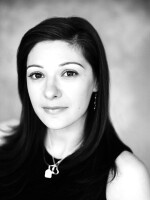MICHELE NORRIS, host:
To Iraq now, where reaction to the promise of more American troops cuts across sectarian lines. Shiite leaders who support the troop increase maybe hoping to use the extra American force against their Sunni rivals. Many Sunnis oppose the new American plan but others say U.S. troops are still needed.
NPR's Jamie Tarabay reports from Baghdad.
JAMIE TARABAY: Only hours after President Bush outlined his new strategy for Iraq, Abdel Aziz al-Hakim, one of the top Shiite leaders in the country, made clear that he supports it.
Mr. ABDEL AZIZ AL-HAKIM (Shiite Leader): (Speaking Foreign Language)
TARABAY: He also voiced support for Prime Minister Nouri al-Maliki's pledge to target all militias, whether Sunni or Shiite. Hakim called on the Iraqi government to strike with an iron fist at those endangering the Iraqi people's safety.
It plays to Hakim's advantage. The militia once attached to his political party is now officially disbanded and many of its members fill the ranks of the police force. Analysts here say Hakim is hoping the government, with help from the U.S., will get rid of his rival, radical Shiite cleric Moqtada al-Sadr.
His Mehdi army dominates the vast Baghdad slum of Sadr City and is widely present in the towns and cities of southern Iraq. Sadr's militia is blamed for much of the sectarian violence here. U.S. commanders have said it is now the greatest threat to Iraq's security.
Some Iraqis are worried about Americans getting dragged deeper into the internal feuding here. Ahmed Mahmoud is a businessman who has dispatched his family abroad because of the violence.
(Soundbite of convoy)
As an American convoy drives by, he says he's worried more American troops will only make matters worse.
Mr. AHMED MAHMOUD (Businessman): (Through Translator) Most likely, this plan will fail because it won't change anything. Actually if there is an increase in troops, it will only lead to more sectarian tension.
TARABAY: Some Sunni leaders oppose a new military campaign in Baghdad because they believe it will be a repeat of last August's security operation, which they say targeted Sunnis but ignored the Shiite militias. Other Sunni leaders, however, welcome additional American troops here because they see them as their only protection against the Shiites.
Meanwhile, the Shiite dominated government claims it hasn't been able to crackdown on the militia so far because the Americans haven't properly equipped Iraqi forces.
Government spokesman Ali al-Dabbagh
Mr. ALI AL-DABBAGH (Spokesman, Iraqi Government): (Through Translator) We're still complaining about how well our forces are armed. Some militias have better weapons and more weapons than the Iraqi police do.
TARABAY: With all the focus now on the military strategy, some Iraqis are complaining that not enough is being done to bring about political reconciliation among the rival factions.
Secular politician Tarik al-Mamouri(ph) agrees there is a need for more negotiations, but he fears that time may have passed.
Mr. TARIK AL-MAMOURI (Secular Politician): (Through Translator) Most of the problems can be solved politically. When the politicians fail to act, then military power should be used. But it must be used in proportion to enforce security and order.
TARABAY: Iraq's ambassador to the United Nations, Samir al-Sumaida'ie, agrees there needs to be a political aspect to the new strategy. In an appearance on CNN, he urged the American people to be a little more patient.
Ambassador SAMIR AL-SUMAIDA'IE (Iraq to United Nations): As a fed up as the American people are, the Iraqi people are a hundred times more fed up. Remember, they have given many times more sacrifices and their life is unbearable on a daily basis. It is not right to walk away and make all these losses meaningless.
TARABAY: Sumaida'ie says it's still too early for the U.S. to leave the Iraqis to themselves.
Jamie Tarabay, NPR News, Baghdad. Transcript provided by NPR, Copyright NPR.






